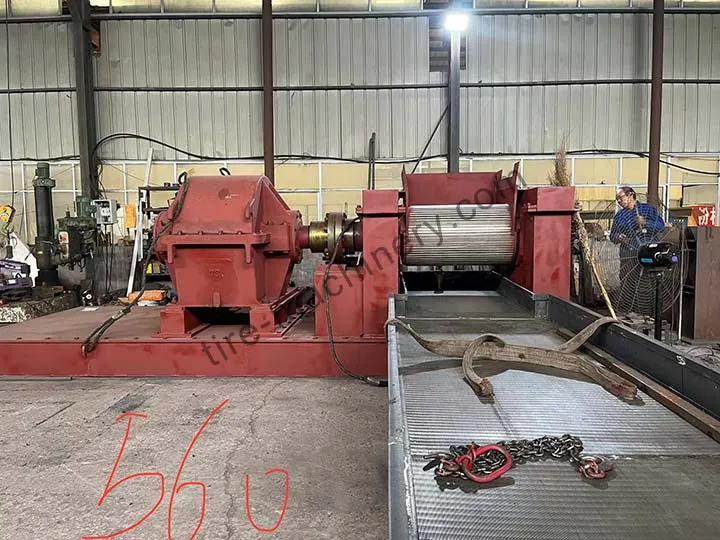How to Get a Quote for a Tire Recycling Machine Fast and Accurately
This guide explains how to get a fast and accurate quote for a tire recycling machine. It outlines the five critical pieces of information suppliers need: raw material type (e.g., car vs. OTR tires), desired capacity, required output size (mesh), whether a single machine or a full line is needed, and factory electrical specifications. Providing these details upfront streamlines the quotation process.

When you’ve done your research, you understand the business opportunity, and now you’re ready for the next step: getting a price. When you get a quote for a tire recycling machine, you want it to be fast, accurate, and relevant to your specific project. Vague inquiries often lead to slow, generic responses.
So, how can you get a faster quote from a supplier? The secret is to provide the right information upfront. This guide explains the five key details we need to know to build a precise and meaningful quotation for you, saving time for everyone involved.
1. What Are Your Primary Raw Materials?
This is the most fundamental question. The equipment needed to process small motorcycle tires is vastly different from what’s required for giant OTR tires.
- What to Tell Us: Let us know the main type of tires you plan to process. Are they mostly passenger car tires, truck tires, a mix of both, or specialized types like OTR/mining tires?
- Why It Matters: Knowing the raw material allows us to determine the necessary pre-processing equipment. For example, a project focused on specialized OTR tire recycling lines will require a completely different setup than one for standard car tires.
2. What is Your Desired Capacity? (kg/hr or tons/hr)
Your production goal is a critical factor that determines the size and model of every machine in the line.
- What to Tell Us: Specify your target output capacity in kilograms per hour (kg/hr) or tons per hour (tons/hr). For example, “I need to process approximately 1 ton of tires per hour.”
- Why It Matters: This detail directly influences the price of the tire shredder machine and grinder. A capacity of 300 kg/hr might require our SL-400 model, while a 2 tons/hr operation would need a much larger system.
3. What is Your Desired Final Product Size? (Mesh or mm)
The size of your final rubber product dictates its market and value.
- What to Tell Us: Tell us the output size you want to produce. Is it a coarse 10-mesh (approx. 2mm) granule for playgrounds, or a fine 40-mesh (approx. 0.4mm) powder for asphalt modification?
- Why It Matters: The required output size affects the configuration of the grinder’s screens and the overall system’s final output rate. Finer powder requires more processing time, which is a key detail needed for an accurate inquiry for a tire recycling plant.
4. Do You Need a Single Machine or a Complete Line?
- What to Tell Us: Clarify if you want to get a quote for a tire recycling machine as a standalone unit (e.g., just a grinder) or if you need a complete rubber powder production line from start to finish.
- Why It Matters: A quotation for a single machine is straightforward. A quote for a full line involves integrating multiple components, including shredders, grinders, conveyors, and separation systems, which requires a much more detailed proposal.
5. What Are Your Factory’s Electrical Specifications?
This is a technical but crucial detail often overlooked in initial inquiries.
- What to Tell Us: Please provide your factory’s industrial voltage and frequency. Common examples include 380V/50Hz, 415V/50Hz, 480V/60Hz, etc.
- Why It Matters: The electric motors for all machines must be configured to match your local power supply. Providing this information from the start ensures the equipment quotation is accurate and prevents costly modifications later.
Putting It All Together: A Good vs. A Vague Inquiry
Vague Inquiry: “Please send me the price of your tire recycling machine.”
Result: A slow response with many follow-up questions.
Good Inquiry: “I need to get a quote for a tire recycling machine. My raw material is mixed car and truck tires. I need a capacity of 500 kg/hr to produce 20-mesh rubber granules. I need a complete line, and my factory power is 415V/50Hz.”
Result: A fast, detailed, and accurate proposal tailored to your project.
By preparing these five key pieces of information, you empower us to serve you better and faster.
